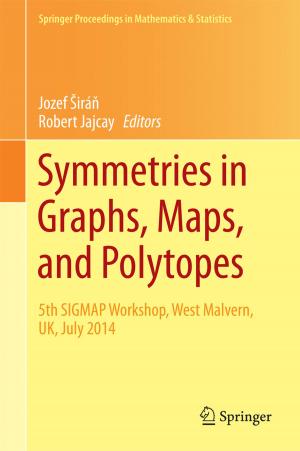Mathematical Aspects of Quantum Field Theories
Nonfiction, Science & Nature, Science, Physics, Mathematical Physics, Quantum Theory| Author: | ISBN: | 9783319099491 | |
| Publisher: | Springer International Publishing | Publication: | January 6, 2015 |
| Imprint: | Springer | Language: | English |
| Author: | |
| ISBN: | 9783319099491 |
| Publisher: | Springer International Publishing |
| Publication: | January 6, 2015 |
| Imprint: | Springer |
| Language: | English |
Despite its long history and stunning experimental successes, the mathematical foundation of perturbative quantum field theory is still a subject of ongoing research.
This book aims at presenting some of the most recent advances in the field, and at reflecting the diversity of approaches and tools invented and currently employed.
Both leading experts and comparative newcomers to the field present their latest findings, helping readers to gain a better understanding of not only quantum but also classical field theories. Though the book offers a valuable resource for mathematicians and physicists alike, the focus is more on mathematical developments.
This volume consists of four parts:
The first Part covers local aspects of perturbative quantum field theory, with an emphasis on the axiomatization of the algebra behind the operator product expansion. The second Part highlights Chern-Simons gauge theories, while the third examines (semi-)classical field theories. In closing, Part 4 addresses factorization homology and factorization algebras.
Despite its long history and stunning experimental successes, the mathematical foundation of perturbative quantum field theory is still a subject of ongoing research.
This book aims at presenting some of the most recent advances in the field, and at reflecting the diversity of approaches and tools invented and currently employed.
Both leading experts and comparative newcomers to the field present their latest findings, helping readers to gain a better understanding of not only quantum but also classical field theories. Though the book offers a valuable resource for mathematicians and physicists alike, the focus is more on mathematical developments.
This volume consists of four parts:
The first Part covers local aspects of perturbative quantum field theory, with an emphasis on the axiomatization of the algebra behind the operator product expansion. The second Part highlights Chern-Simons gauge theories, while the third examines (semi-)classical field theories. In closing, Part 4 addresses factorization homology and factorization algebras.















